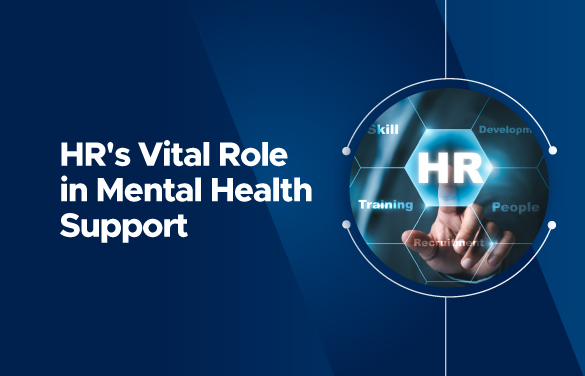- By SKIMT MBA
- November 9, 2023
- No Comments
Mental health support in the workplace: HR’s role and initiatives
In today’s business environment, the importance of employee mental health and well-being is also one of the priorities that are required to look after. When it comes to implementing successful mental health initiatives, human resource departments hold a huge responsibility as their role of creating a supportive environment is significant. While pursuing in human resources management colleges in Tamil Nadu, you can understand the role of human resources in various sectors and its functions. However, the conventional tasks of HR are slightly expanded as now it also concerns the employee’s mental health. It means that HR provides support and assistance to the employee. The company department leaders within the company have a crucial responsibility to play as well. They must identify and take fast action to address an employee’s mental health difficulties. In this article, you can explore the role of HR in promoting and supporting the mental health of employees in the workplace.
The importance of management in mental health support:
Creating an internal atmosphere is part of management’s responsibility. The management team is in charge of utilising the numerous production elements. As a result, it is the responsibility of management to establish an atmosphere that motivates employees to give their best so they can complete their responsibilities effectively and efficiently. This involves making sure that raw resources are available, setting pay, and creating rules and regulations. This leads us to the view that effective management significantly affects employees’ mental health. Let’s discuss how HR support this idea.
Role of HR in mental health support:
A company’s biggest asset is the human resources department which combines how the work proceeds and who will carry over. Initially, HR focused on administrative tasks that included recruitment, training, and employee relations and now includes employee mental health. Why is it required? Employees are the basic asset for any organization they need to be taken care of in order to run a business. Human resource management should have a great part in supporting and maintaining the balance between the company and employees. Recognizing mental health will actually improve productivity, engagement, and job satisfaction. The HR role is necessary in developing a supportive work environment.
Mental health awareness:
In an organization, the role of HR is to enhance the mental health awareness of the employees. With organizing training programs and workshops, HR needs to educate about the importance of mental health, reduce dishonour, and provide resources to acknowledge and be aware of the corporate environment. Always open up for communication, this encourages employees to contact you immediately on the course of assistance or support required.
Implementing policies and regulations:
The HR departments need to be concerned about developing the regulations and prioritize maintaining and keeping stable mental health among employees. Managing work-life balance, flexible work arrangements, and employee assistance programs make employees feel energized and result in increased productivity. Thus, it is necessary to incorporate mental health considerations in deriving company policies that actually bring an inclusive and supportive work environment.
Work-life balance:
Maintaining mental health also includes how employees balance their work and life. In this, HR should prepare company regulations that are flexible working hours, give recognition in teams even employees working from home and paid time off. This will promote the concept of work-life balance, reduce stress and burnout among employees, and direct overall job satisfaction.
Supportive culture:
HR has a crucial role in developing corporate culture values to maintain stable mental health. Employees feel comfortable if they want to discuss mental health concerns, communication helps to reveal their issues, encourage managers to have regular catch-ups to know how they perform, coordinate with the team members, discuss workloads, stress and any potential challenges that affect the employee’s mental health.
Train managers and leaders:
In an organization, HR provides the required training and support to managers and leaders that equip them with the knowledge and skills to support their mental health. HR ensures that the mental health of an employee is a high priority at any level of organization. This may entail educating employees about potential hints of mental health problems, offering suitable assistance, and directing them to appropriate resources as necessary.
Monitoring well-being initiatives:
HR can put evaluation and monitoring procedures in effect. This could involve surveying the employees, monitoring absenteeism levels, and analyzing turnover statistics. HR may make data-driven decisions and continuously enhance the company’s mental health support systems by tracking the effects of well-being initiatives.
Conclusion:
Human resources are impacted by psychological well-being as it has a great influence on employee satisfaction and productivity. The top colleges for human resources management need to clear the air that hiring responsible candidates, directing, assessing and analysing the performance is not alone the HR department’s tasks it is also concerned with creating a supportive environment and maintaining stable mental health among employees. They can show
Organizations can show their dedication to employee well-being by acknowledging the effect of mental health, developing an open culture, encouraging work-life balance, offering support tools, improving the physical environment, and investing in training. When HR practices appropriately address mental health issues, it increases the likelihood of employee success and a happy, engaged workforce.



